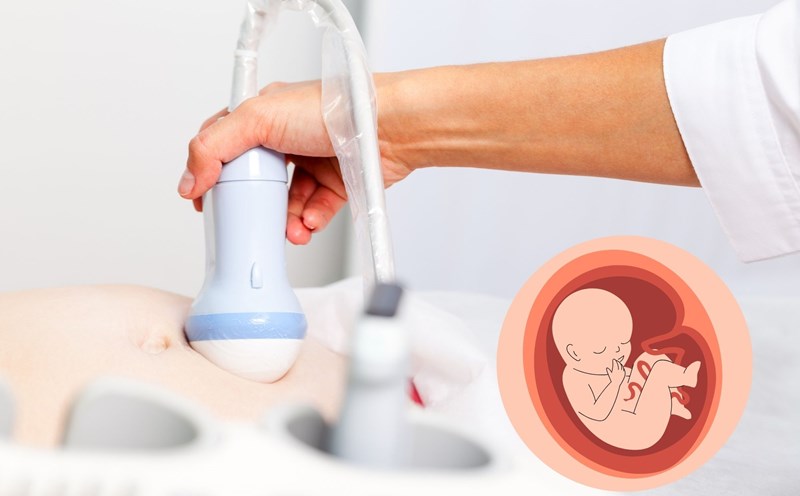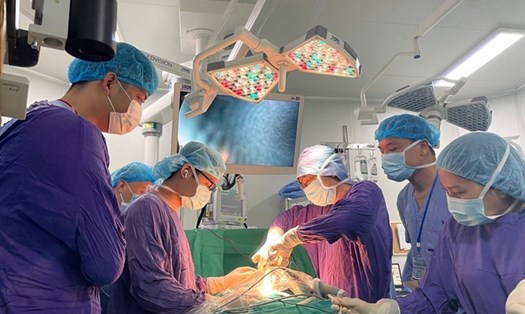big cities still lack high-quality medical human resources
Prof. Dr. Ta Thanh Van - Chairman of the Council of Hanoi Medical University, who has contributed many opinions to the development of the capital's health sector - said that the health system of Hanoi still shows many limitations and shortcomings. The human resources for health care are still lacking in quantity, with evidence that the ratio of health care workers/10,000 people in the city to the population is not high, much lower than in many developed countries in the world.
In addition, the serious imbalance of medical human resources between the fields of clinical medicine and preventive medicine, between specialties, is an problem that has existed for many years. The absence of experts in some specialized fields has created gaps in high-quality specialized medical human resources in Hanoi's hospitals in the middle of the capital. If we consider hospitals in suburban districts and towns, the situation is much more difficult.
One of the reasons, Prof. Dr. Ta Thanh Van analyzed, shows that Hanoi does not have specific outstanding policies for the health sector such as remuneration regimes, financial mechanisms, regulations on medical examination and treatment and health insurance payment mechanisms suitable for the capital to encourage the development of doctors working for non-public health facilities; create systematic connections between public and non-public health facilities.
In addition to insurance, the city budget does not have a policy to prioritize ensuring family medicine activities, both public and private, and encourage private healthcare, thereby strengthening the grassroots healthcare network.
Grassroots health care in Ho Chi Minh City used to face a serious shortage of human resources, but now, this situation has changed more positively.
Regarding working at District 8 Medical Center (HCMC) for about 6 months now, Dr. Tran Minh Hai - Examination Department of District 8 Medical Center said that this is the place where he has been nurtured in knowledge, professional skills and practical experience. "I have been exposed to many patients with different medical conditions, thereby improving their diagnosis and treatment capability. In addition, I also learned how to communicate and behave with patients in a dedicated and thoughtful manner" - Dr. Hai shared.
Speaking to Lao Dong Newspaper, Mr. Hoang Van Cuong - Director of District 8 Medical Center - said that the unit has made significant progress in consolidating and developing medical human resources. From the number of about 150 employees in 2021, up to now, this number has nearly doubled, about 280 people. In particular, the number of doctors has increased from 15 to more than 60.
Mr. Cuong commented that in the past, civil servant recruitment still faced many difficulties. However, since the Ho Chi Minh City Department of Health has had many solutions to help increase resources for grassroots health care, such as the practical training program at general hospitals associated with health stations, creating opportunities for doctors to better understand grassroots health care. Since then, many doctors have proactively chosen to work in grassroots health care after completing their practice program and having a practice license.
There needs to be a policy to encourage high-quality human resources
In the capital, health experts say that Hanoi needs to have policies and mechanisms for using high-quality human resources to serve socio-economic development, because the city of course enjoys the highest quality human resources in the country, belonging to central agencies located in the area, in all fields, including health.
Professor Ta Thanh Van said that Hanoi needs to issue policies and mechanisms for using high-quality medical human resources of hospitals and universities under the Central Government in the area.
Review and upgrade the construction of facilities and human resource projects of grassroots health facilities to adapt to new tasks. Hanoi also needs to have preferential policies for recruitment, appropriate salary payment, and encourage high-quality human resources to work at grassroots health care. managing the health of people in the capital by district, town and commune will save costs, increase cost value - efficiency because people's health is improved, proactively take care near home, reduce overload in hospitals.
Prof. Ta Thanh Van said that Hanoi needs to have a treatment regime, financial mechanism and health insurance payment in accordance with the characteristics of the capital, at the same time, it needs a policy to encourage doctors to work at non-public medical facilities and strengthen the linkage between public and private health care.











